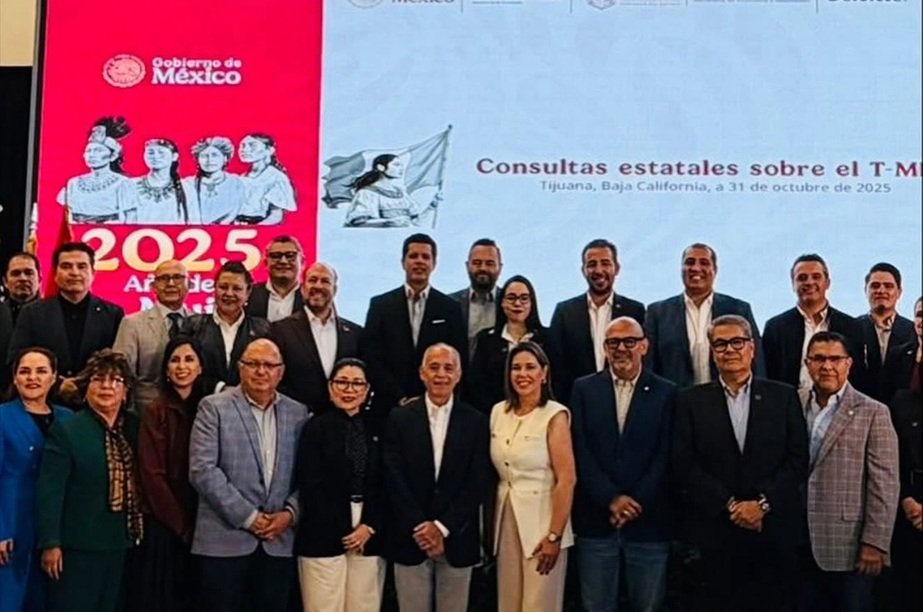
Index Mexicali Participates in Consultation on USMCA Review
Share your love
 -Editorial
-Editorial
Index Mexicali took part in the state consultation process on the upcoming review of the United States-Mexico-Canada Agreement (USMCA), emphasizing the importance of ensuring continued preferential access to North American markets and strengthening supply chain integration.
Salvador Maese Barraza, president of Index Mexicali, commended the Mexican government’s openness in building consensus on priorities for the trade pact as it gathers input, comments, and proposals from key productive sectors.
Maese highlighted the role of Jorge Figueroa, coordinator of the “Corredor del Bienestar” program for Baja California and Baja California Sur at the Ministry of Economy, for his leadership in collecting feedback and initiatives from the export manufacturing industry—a sector vital to the border region’s economy.
He noted that the USMCA promotes cooperation in innovation and technology, fostering the exchange of knowledge and best practices among member nations, which can enhance Mexico’s industrial competitiveness.
The agreement, Maese added, supports greater integration of North American supply chains, allowing Mexican companies to benefit from geographic proximity and collaboration with suppliers and clients in the United States and Canada, improving efficiency and reducing costs.
The USMCA review, scheduled for 2026, was announced earlier this year amid renewed global tariff tensions triggered by President Donald Trump. The trade pact was signed in 2018 during Trump’s first term and took effect on July 1, 2020, replacing the North American Free Trade Agreement (NAFTA).
The USMCA emerged as a modernization of the North American Free Trade Agreement (NAFTA) after extensive renegotiations under the Trump administration, culminating in implementation on July 1, 2020. The pact introduced updated rules of origin for automobiles, labor-rights enforcement mechanisms, digital-trade provisions, and other reforms.
The agreement includes a unique “sunset clause” and mandates a six-year joint review by the United States, Mexico, and Canada, set for July 2026, at which point the parties can decide whether to extend the pact for a further 16 years, conduct annual reviews, or allow eventual expiration. To prepare, all three countries have launched domestic consultations in 2025 to solicit stakeholder input on how the treaty is working and how it might be improved.
Since its implementation, the USMCA has shown measurable results: intra-regional trade in goods and services has grown, exports from the U.S. to its North American partners rose by 16 percent in 2022, and foreign direct investment benchmarked across the region improved. While some structural challenges remain—especially regarding labor enforcement and broader productivity gains in Mexico—the agreement is broadly viewed as a qualified success so far.



